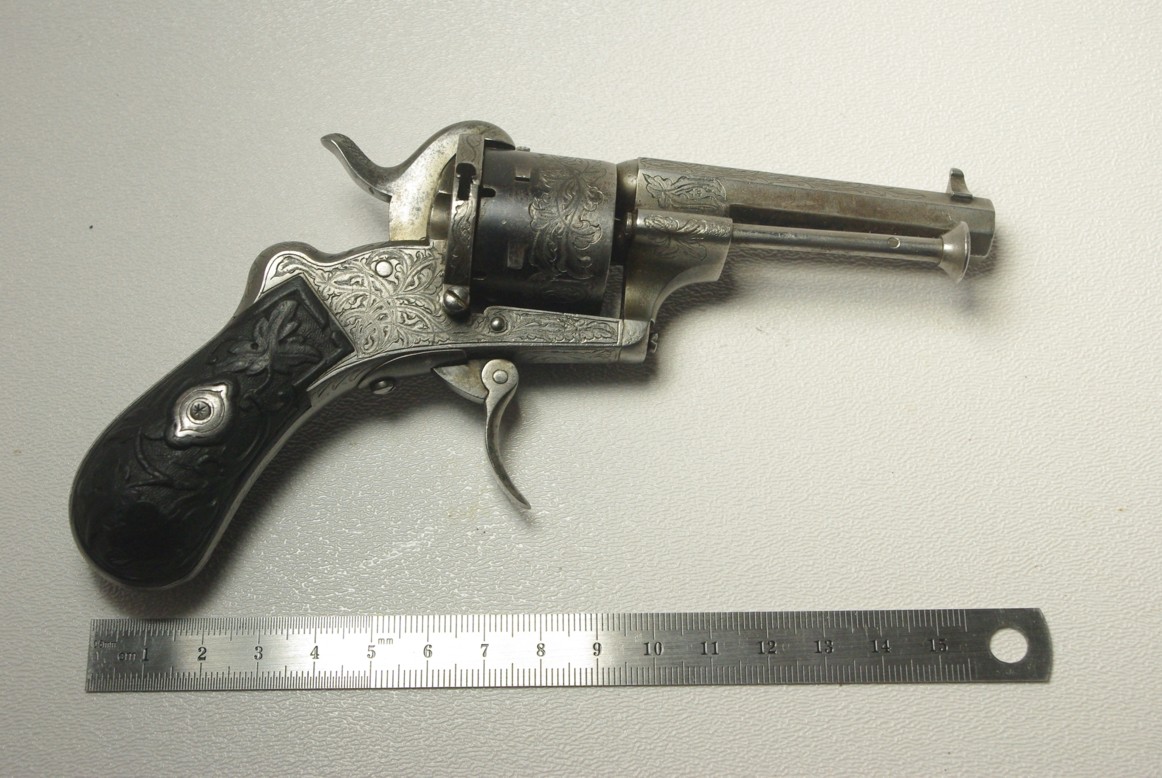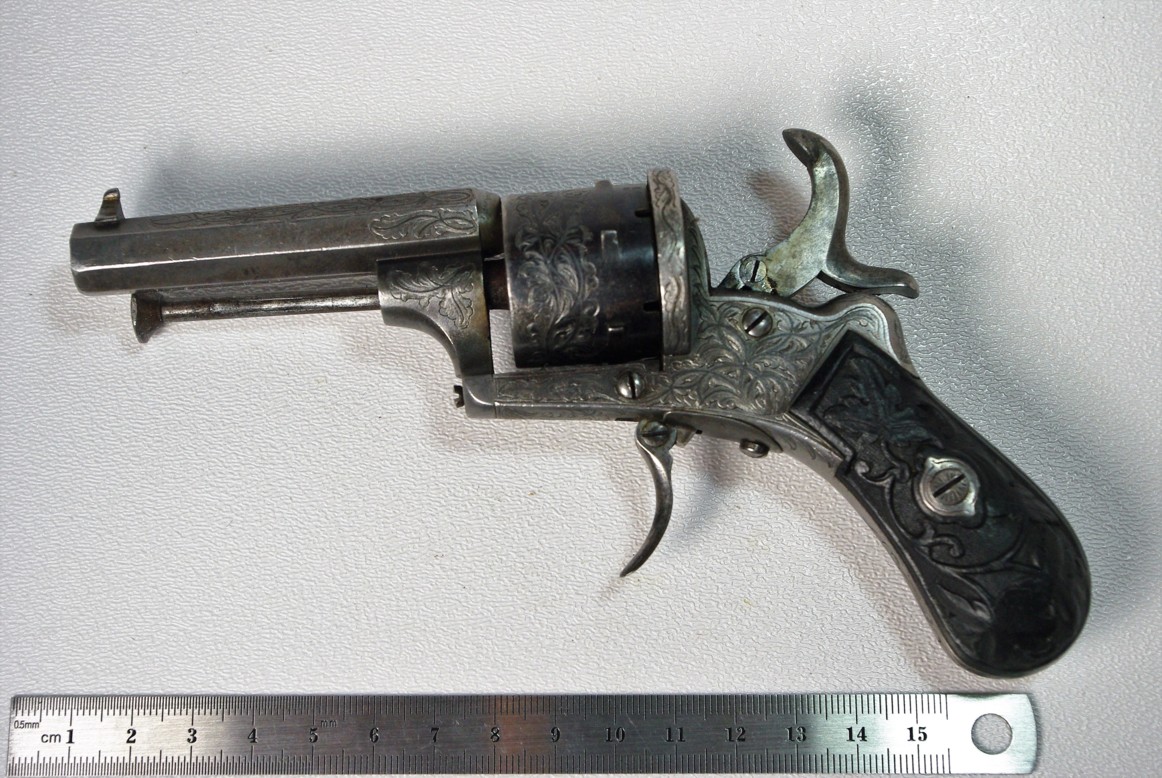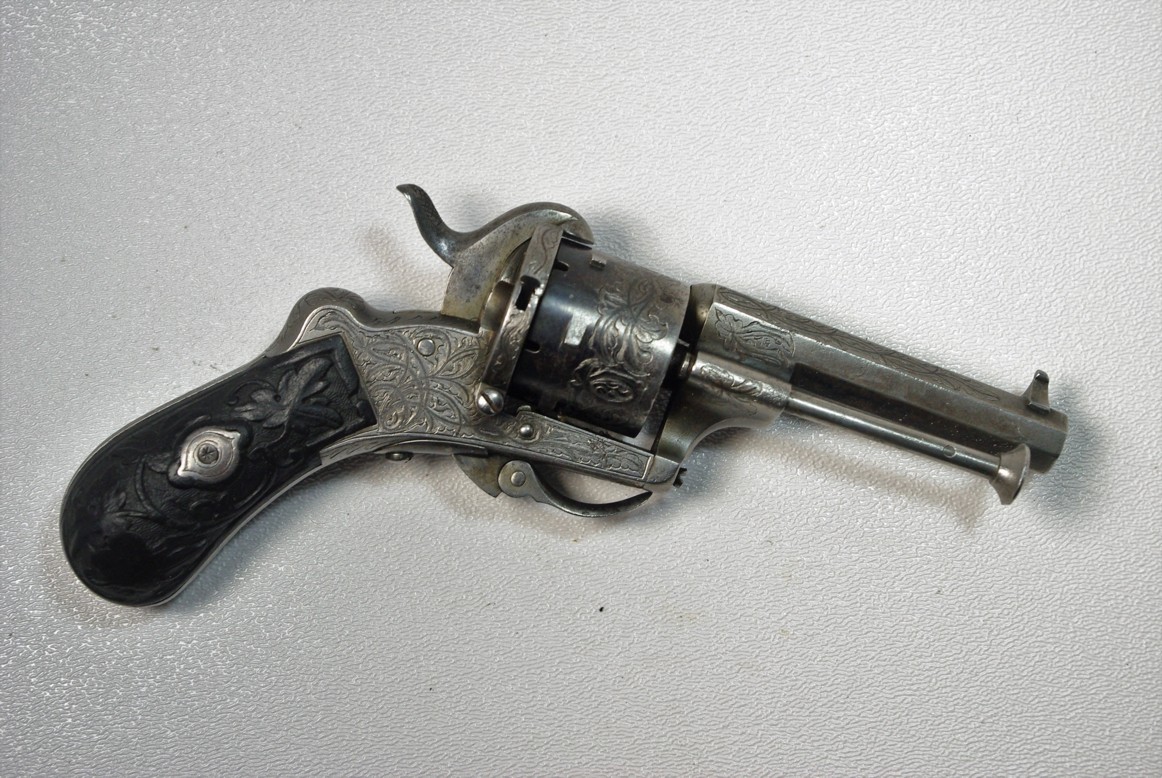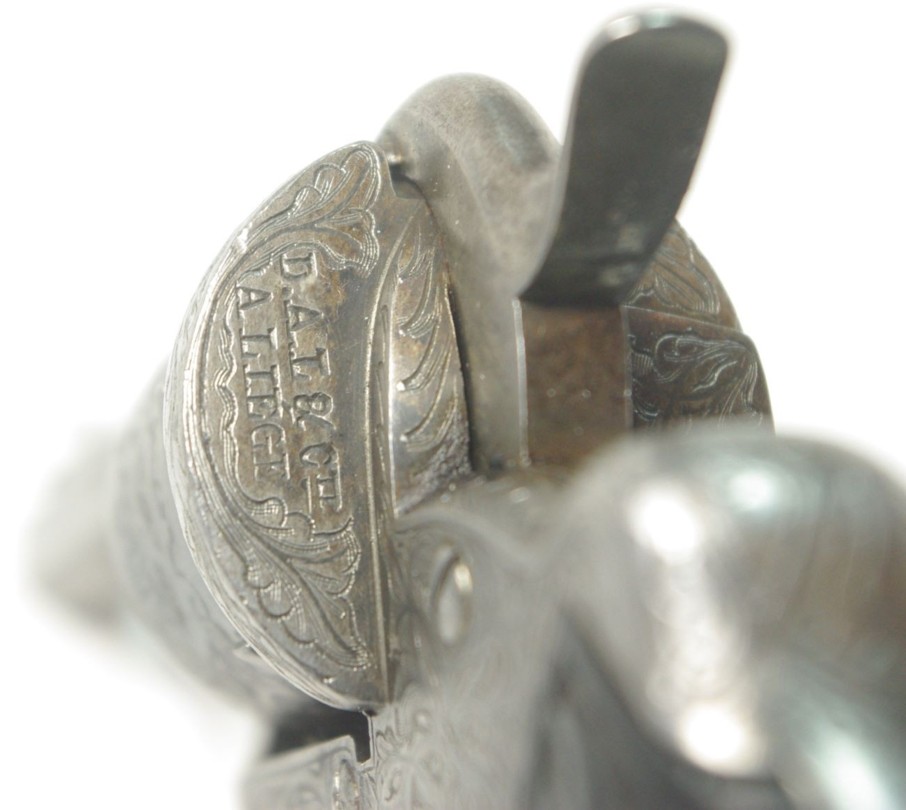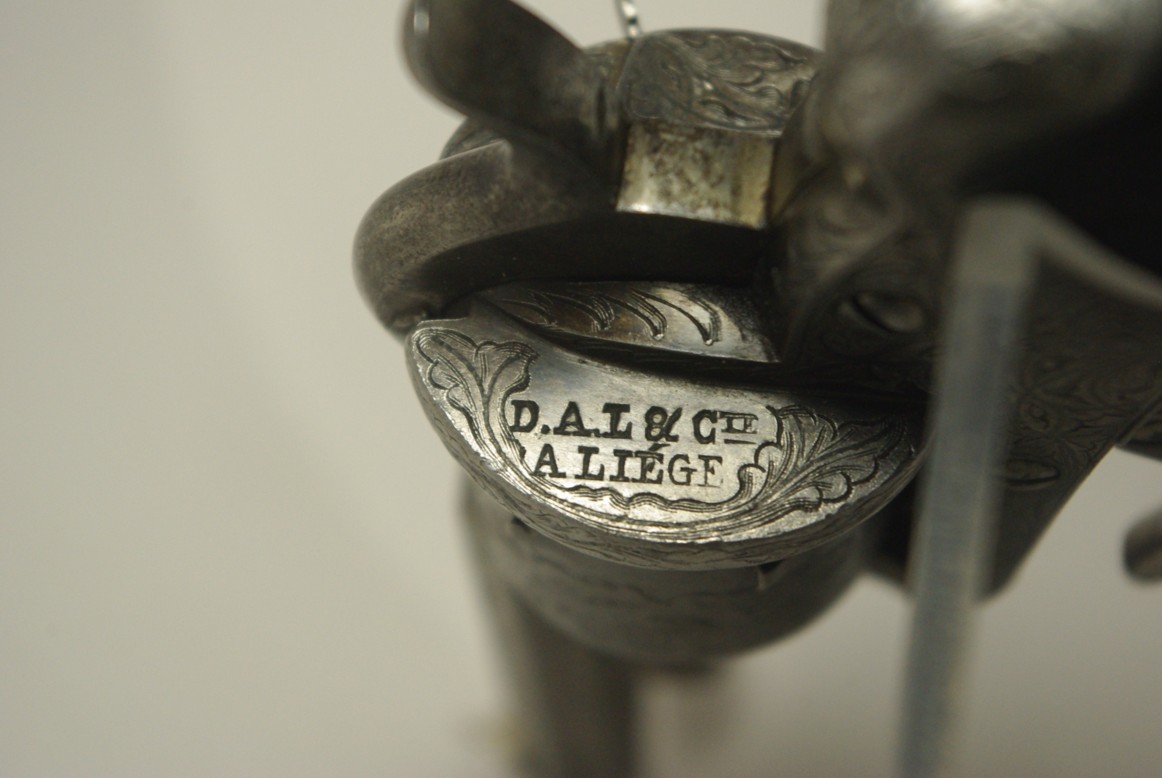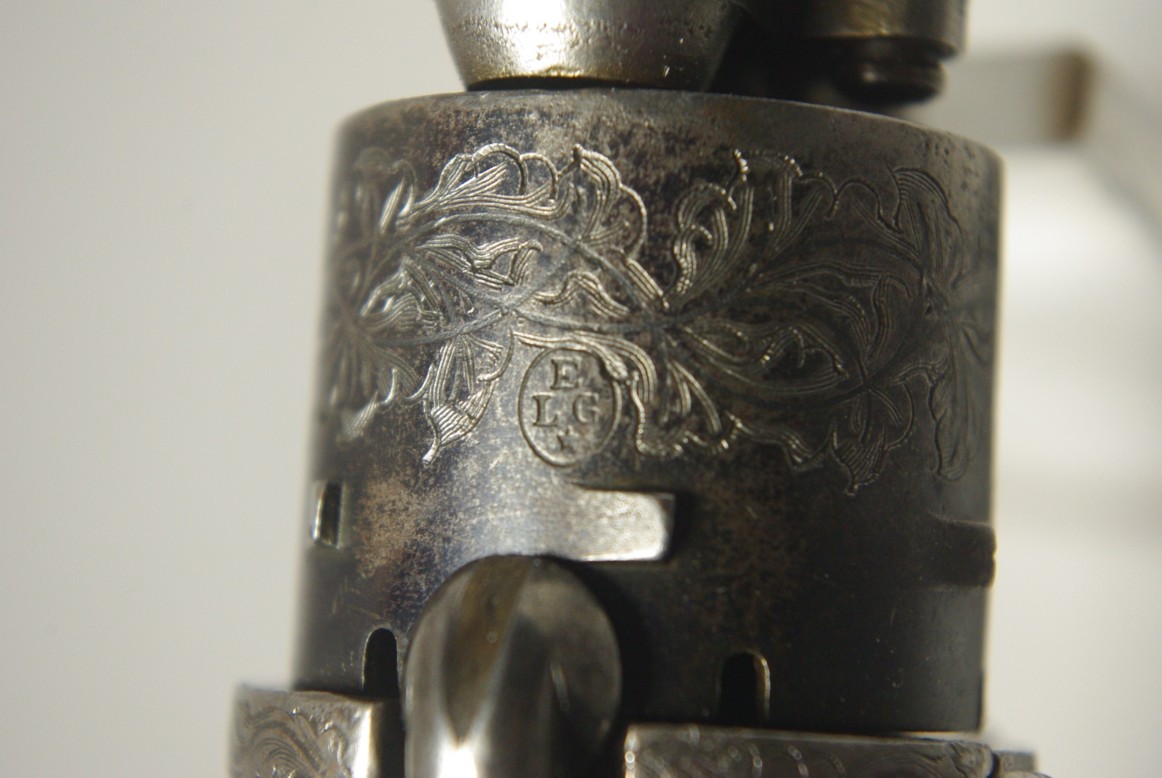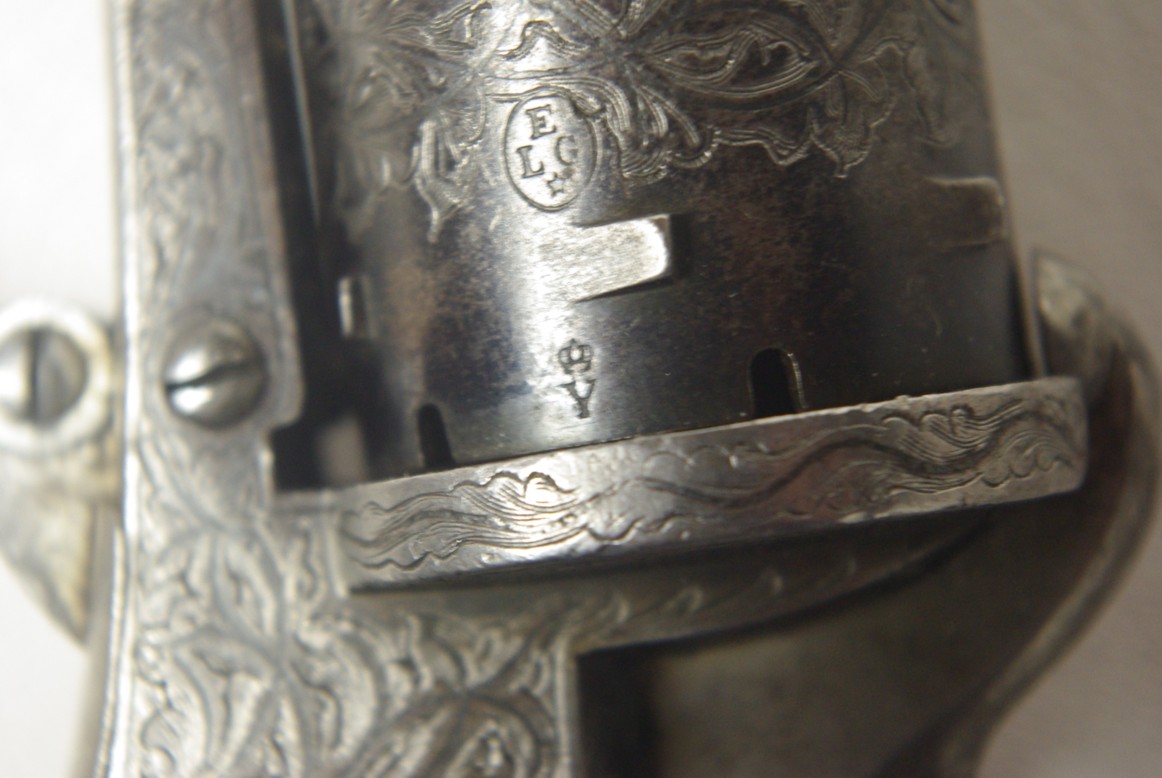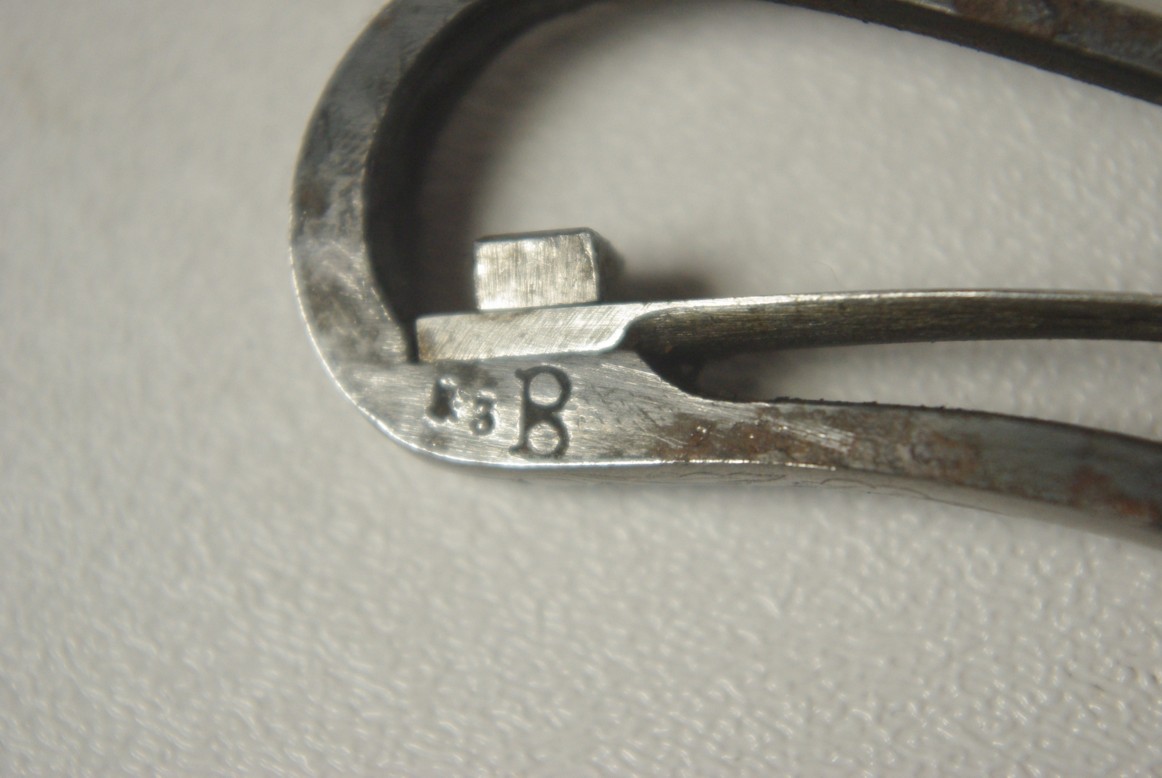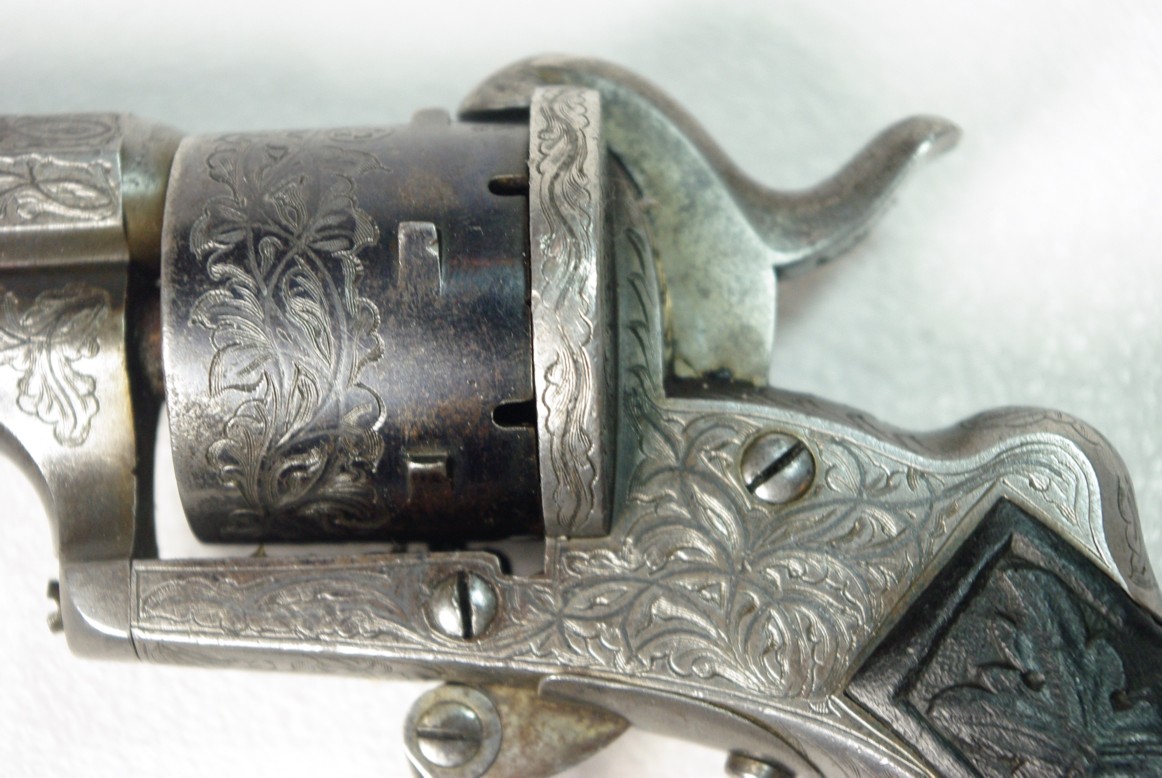Les plus belles réalisations de cet artisan, et bien d’autres encore, se trouvent dans le livre "Les armuriers Liégeois à travers leurs réalisation. 1800 - 1950".
Pour tous les détails voir : LES ARMURIERS LIEGEOIS
Dresse Ancion Laloux & Cie
It is
about a rifle with percussion and black powder mono barrel. This last is with
smooth! The rod of loading out of iron is articulated. The band around the
barrel is out of brass. The barrel is provided with a rise with cursor seem-you
it (seen incomplete) and with a front sight in half-moon.
The stick
in wood is worked “with English”.
The lock carries a trademark of Liège, namely
Dresse-Ancion-Laloux & Cie à Liège. This
transitory company did exist only of 1862 to 1866 before being replaced by
Old
Factory Dresse-Laloux (1867/1908) street On
the fountain, 47 in Liège.
The weapon carries a punch of the proofhouse of Liège
; C crowned
which is the countermark of an inspector of use of 1853 to 1877.
The other marks are (so well read)
O.M. in a
circle is unknown for me.
45000
(figures in overload?) struck the stick is perhaps a job number. The letter
M
is probably a mark of workshop.
Afflicted
to be able to be more precise.
GG
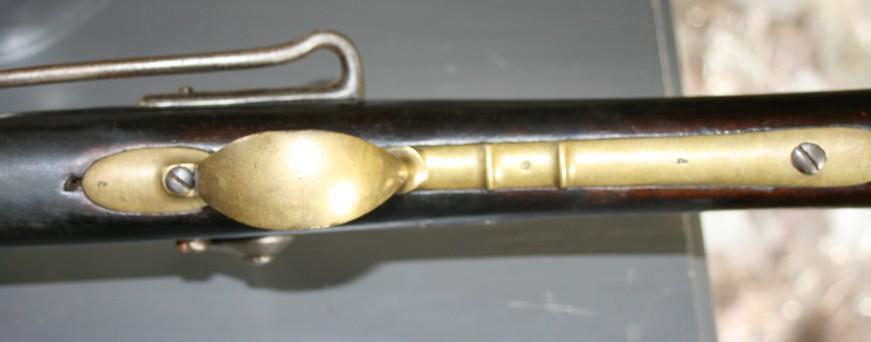
Dresse Ancion Laloux & Cie
Here is a relatively
well-made pinfire revolver, of unspecified caliber (probably 7 or 9 mm), five or
six shots, single and double action, open frame, octagonal barrel, lateral bush
ejection rod. The cylinder was tanned. Looks like there's a gap on the barrel
feed door. We would have liked a picture of the small plate near the trigger:
would that be a safety feature? The initials
DAL and Cie in
Liège are very interesting because they
allow us to date the relatively limited production period.
The markings
V and
Y under crown: countermarks of controllers (in use between 1853 and
1877).
ELG in
oval: acceptance between 1846 and 1893
3 B
under plate: not identified
The initials
DAL and Cie
can almost certainly be attributed to the company
Dresse-Ancion-Laloux et Cie, arms
manufacturers rue Sur la Fontaine 47 in Liège, registered in the proofhouse
between 1862 and 1866, as the "Qui est qui de l'armurerie liégeoise" (page 77)
of Michel Druart and Guy Gadisseur (†) tells us.
GP with the help of the whole team.
